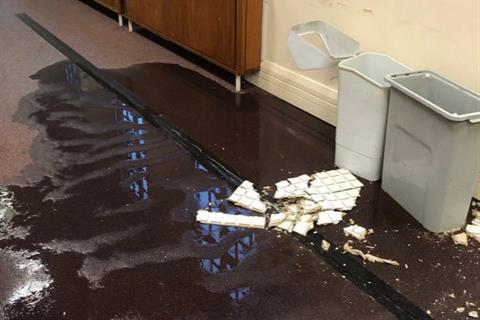The government has been unable to commit to any more funding to fix a court estate dismissed as not fit for purpose, it was revealed today.
In his response to the justice committee report on court capacity, justice secretary Dominic Raab MP said it was recognised that maintenance works are needed across the estate.
But in response to recommendations for a comprehensive plan with funding over several years, Raab was circumspect, pointing to the spending review commitment to pay for medium-term maintenance but not committing to any more.
Raab said: ‘We have a planned pipeline of future works to improve the resilience and quality of the court estate, and this is kept under regular review. Our strategy is to continue to seek further funding to improve the overall condition of the court and tribunal estate and reduce the risk of building failure.’

The lord chancellor added that investment would be prioritised towards courts where it is most needed, to ensure buildings are safe, secure, meet statutory requirements and keep services running.
Where improvements cannot be made without a serious impact on hearings, Raab continued, remote technology and temporary venues may be relied upon ‘if there is a value-for-money case’.
The committee wanted a long-term strategy for improving the court estate, having heard evidence from the lord chief justice that some buildings are ‘frankly an embarrassment’.
Kevin Sadler, former chief executive of HM Courts & Tribunals Service, also told the committee that too many court dates were being lost due to heating or air-conditioning failures. Sadler said the Treasury had provided an extra £105m capital funding on top of the expected £50m in 2021, allowing for investment in 165 sites (around half the estate). But the overall maintenance backlog is around £1bn, and many of the repairs necessary are so extensive that they would require whole buildings to be closed down.
Raab said the committee’s further recommendation for a courts inspector – the position having been abolished in 2010 – would require ‘significant long-term resourcing’ that was not available.
The Law Society said continuing under-investment in the courts estate is likely to increase the backlog and place more pressure on the justice system.
'We have been raising the crumbling state of our court buildings for some time now and our members – and all court users – need more clarity on what the government intends to do about it, said president I. Stephanie Boyce.
'When there is such a vast backlog, the criminal justice system can ill afford to lose sitting days because of heating failures for example.
'We also question whether the court reform programme can be completed in the timescale suggested. The end date remains unchanged despite many projects being paused during the pandemic.'



























1 Reader's comment